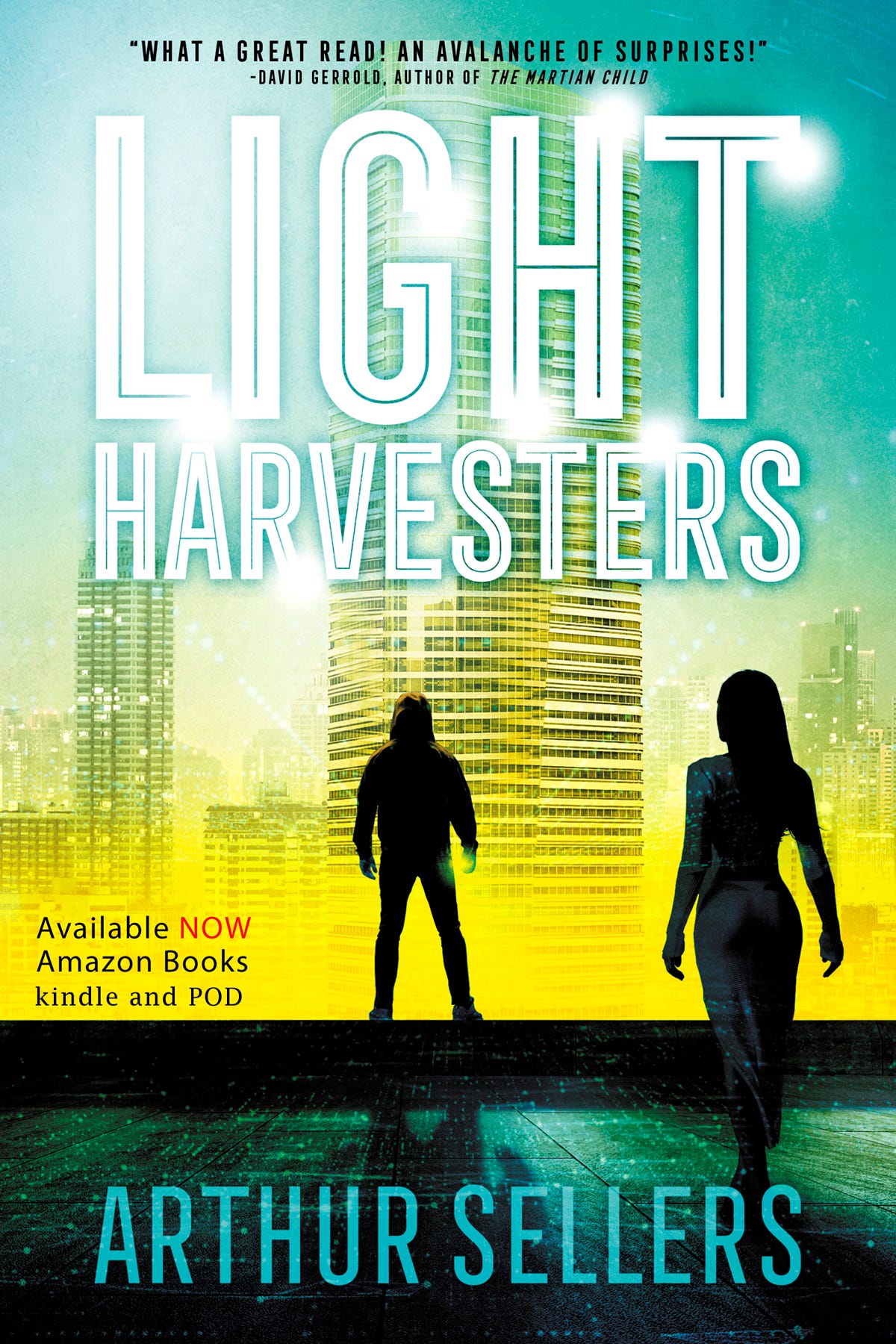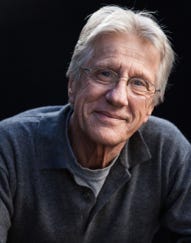SIX QUESTIONS WITH ARTHUR SELLERS
Boldly Going Where the Imagination Leads
Arthur Sellers is an Emmy-nominated film and television writer. Among his notable sci-fi credits are Max Headroom,- Steven Spielberg's Earth 2, - 20th Century Fox's Modern Problems,- and Britain's Jerry Anderson series, Space Precinct.
Light Harvesters represents his distillation of forty years of lay futurism.
SIX QUESTIONS
1 - Which writer who came before, do you admire the most?
Picking a writer to admire most, is impossible. The genres, eras and cultures from earliest times to now is an ocean I live in: how could I pick a favorite drop? The Greek tragedians were masters at portraying the universal human condition. Hesse assured me that being a “madman” was simply acute awareness. Hemingway made me use my words like valuable coins; spent sparingly and wisely. Tolkien created an entire, consistent and believable pre-history of the world. Hunter Thompson was a box of lessons in what, and what not to do with one’s outrage and passion. Will and Ariel Durant restore perspective. Vonnegut, Asimov, Arthur C. Clarke, Larry Niven, Pohl, Shakespeare—all engaged me, teaching much. But perhaps the one who spoke most directly to my being was Goethe: he knew all there was to know at the time and wasn’t afraid of it. This couplet has always been my approach to everything in life--- “Whatever you can do, or dream you can, begin it. Boldness has genius, power and magic in it.”
2 - Which teacher(s) had the most profound effect on you?
A High School English teacher was the first to make me know I was a creative person: commending me in class for my writing, performance in the school play and as a painter. Those things weren’t highly prized by my peers, who admired sports team stars and the “popular” kids. But it mattered to me. I was fortunate enough to be among the first students selected for NYU’s new School of the Arts taught by professionals (now Tisch). Director Peter Kass taught acting. He broke me open, vulnerable to myself—great for use on stage at Lincoln Center Repertory where I landed after NYU, but absolutely essential for writers! I never studied writing, I just do it. I’d already written TV and Modern Problems for 20th Century Fox, but thought I should learn more. Took one popular screenwriting class—formulaic waste of time—don’t remember squat.
3 - Besides writing, what’s your favorite hobby or passion?
I’m so boring! I love maintaining my tree and bushy yard/mini eco system for plants birds, lizards, skunks, opossum, bees, butterflies, dragonflies, migrating hummingbirds, insects and shady respite under the grape arbor. Koi pond makes it all work together. I am a flying nut since childhood. Built thousands of models, memorized all nations’ WW2 aircraft. Was an aero engineering freshman at Purdue, 1963. Still a nut, talk airplanes to me and I’m buying the drinks. I also absorb everything I can about aerospace. I long to go into space. My deep-set inner passion is Consciousness and quantum superposition; it’s where science and metaphysics meet. That’s territory no imagination can tire of.
4 - What is something that those who don’t write fiction do not know or understand about it?
We humans know what we know, but fiction imagines what we don’t know, and makes it accessible for thought and discussion. Jules Verne made us get serious about a lot of tech on the horizon. Mary Shelley gave us a peek at the CRISPR genomic-monsters we worry about today. In The Uses of Enchantment, Bettelheim says traditional oral fairy tales like Hansel and Gretel are a psychological way to take existential fears kids have but can’t name, and bring them into simple dramas their young minds can understand, and cope with. I believe fiction does the same for adults. Sci-fi, mystery, thriller, romance, satire, fantasy, it all opens the mind to its own imagery and power.
5 - Can you think of a key breakthrough moment in your work, for you, that you’d be willing to share?
I can tell you the most rewarding thing that’s ever happened in my career, and it happened while writing Light Harvesters, my debut novel. (psst, get it on Amazon Books.com) I wrote a lot of tv and movies, from Richard Pryor, Cher, Mary Hartman, to Max Headroom, Earth 2, etc etc, because it was the money thing to do—I enjoyed it, and it allowed me to marry, have a child, do the worthwhile things, and secured my later years. But I am a novelist inside. And so this bucket list novel is the distillation of forty years as a lay futurist, a fact-based extrapolation of life in 2089. As I was writing, I would come up with a small thing that didn’t quite seem relevant, but for some reason I liked it so would leave it in the draft, expecting to cut it later. I would forget about it, and then further on, sometimes many chapters later, I would come to a stop: halted because I didn’t know what comes next, or by some incomplete piece of the puzzle—and in a flash, that thing I put in before turned out to be the answer! It occurred four or five times, and I have no explanation for it. Gives you faith in the writing process.
6 - What’s next for you?
Unsure. Possibly a sequel to Light Harvesters, to be set in 2190, tentatively titled Water Rules. Right now I’m about to embark on readings/signings of Harvesters. The thing is, it was just a bucket list thing, but when a Hugo and Nebula Award winner like David Gerrold volunteers to be your editor, and notable other sci-fi people dig it, and you find yourself speaking on panels at Sci-Fi Conventions as I was recently, you realize the damn book must actually be good. So I have to do right and promote it.






